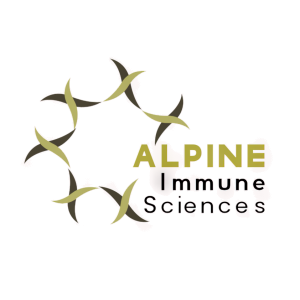Alpine Immune Sciences Terminates Enrollment of Davoceticept Clinical Studies (NEON-1 and NEON-2)
Alpine Immune Sciences (NASDAQ: ALPN) has announced the voluntary termination of enrollment in its clinical studies for davoceticept (ALPN-202) due to patient safety concerns following two deaths in the NEON studies attributed to cardiogenic shock. The decision prioritizes the safety of participants and allows the company to redirect focus towards advancing ALPN-303, a promising dual BAFF/APRIL B cell cytokine inhibitor for autoimmune diseases, and acazicolcept (ALPN-101) for systemic lupus erythematosus. The company plans to conduct a phase 2 study for ALPN-303 and further evaluations in various autoimmune conditions.
- Shift in focus to ALPN-303 and acazicolcept after discontinuing davoceticept studies.
- ALPN-303 has potential in treating multiple autoimmune diseases.
- Plans for a phase 2 proof-of-concept study in systemic lupus erythematosus.
- Termination of davoceticept studies due to safety concerns raises regulatory scrutiny.
- Two deaths linked to NEON studies may hinder future trial approvals.
- Company’s primary focus will be the pursuit of expedited development plans for ALPN-303 in multiple autoimmune and inflammatory indications -
The decision to terminate enrollment in the davoceticept studies was made in the interest of patient safety after the Company was notified of a second death in the NEON-2 study, attributed to cardiogenic shock. The participant, who had metastatic colorectal cancer previously treated with colectomy and multiple prior systemic chemotherapies, had received a single dose each of davoceticept and pembrolizumab. NEON-2 had previously been subject to a partial clinical hold due to a death attributed to cardiogenic shock. The Company is conducting an ongoing, comprehensive assessment of all NEON study participants.
“Patient safety remains our highest priority,” said
About Davoceticept and the NEON Studies
Davoceticept (ALPN-202) is a first-in-class, conditional CD28 costimulator and dual checkpoint inhibitor intended for the treatment of cancer. Preclinical studies of davoceticept have successfully demonstrated superior efficacy in tumor models compared to checkpoint inhibition alone. In phase 1 studies, davoceticept has demonstrated encouraging clinical activity, especially in renal cell carcinoma, as monotherapy and in combination with pembrolizumab.
NEON-1 (NCT04186637) is a phase 1 monotherapy dose escalation and expansion study in adults with advanced malignancies. NEON-2 (NCT04920383) is a phase 1 dose escalation and expansion combination study of davoceticept (ALPN-202) and pembrolizumab.
About ALPN-303
ALPN-303 is a dual B cell cytokine antagonist being developed for multiple autoimmune and/or inflammatory diseases. Based upon an engineered TACI (transmembrane activator and CAML interactor) domain, ALPN-303 in preclinical studies shows robust inhibition of B cell activating factor/B lymphocyte stimulator (BAFF, BLyS) and a proliferation inducing ligand (APRIL). These two pleiotropic B cell cytokines play key roles in B cell development, differentiation, and survival, and together contribute to the pathogenesis of multiple autoimmune diseases like systemic lupus erythematosus (SLE) and many other autoantibody-related inflammatory diseases. By simultaneously blocking these two cytokines, ALPN-303 has the potential to improve outcomes in patients suffering from severe autoimmune and/or inflammatory diseases. Alpine plans to conduct a phase 2 proof-of-concept study in SLE and open-label basket studies in renal, hematologic, and dermatologic autoimmune diseases, with the first of these anticipated to begin in the first half of 2023.
About
Forward-Looking Statements
This release contains forward-looking statements within the meaning of Section 27A of the Securities Act of 1933, Section 21E of the Securities Exchange Act of 1934 and the Private Securities Litigation Reform Act of 1995. These forward-looking statements are not based on historical fact and include statements regarding our platform technology and potential therapies; our plans to terminate enrollment of the davoceticept (ALPN-202) NEON studies and focus our development resources on our ALPN-303 and acazicolcept (ALPN-101) programs; our interactions with regulators and the timing thereof; the timing of and results from clinical trials and preclinical development activities; clinical and regulatory objectives and the timing thereof; the potential efficacy, safety profile, future research and development plans, addressable market, regulatory success, and commercial potential of our product candidates; the progress and potential of our other ongoing development programs; expectations regarding our ongoing collaborations; and our ability to successfully develop and achieve milestones in our development programs. Forward-looking statements generally include statements that are predictive in nature and depend upon or refer to future events or conditions and include words such as “may,” “will,” “should,” “would,” “expect,” “plan,” “intend,” and other similar expressions, among others. These forward-looking statements are based on current assumptions that involve risks, uncertainties, and other factors that may cause actual results, events, or developments to be materially different from those expressed or implied by such forward-looking statements. These risks and uncertainties, many of which are beyond our control, include, but are not limited to: clinical trials may not demonstrate safety and efficacy of any of our product candidates; our ongoing discovery and preclinical efforts may not yield additional product candidates; our discovery-stage and preclinical programs may not advance into the clinic or result in approved products; any of our product candidates may fail in development, may not receive required regulatory approvals, or may be delayed to a point where they are not commercially viable; we may not achieve additional milestones in our proprietary or partnered programs; the impact of competition; adverse conditions in the general domestic and global economic markets; the impact of the COVID-19 pandemic on our business, research and clinical development plans and timelines and results of operations, including the impact on our clinical trial sites, collaborators, and contractors who act for or on our behalf, may be more severe and prolonged than currently anticipated; as well as the other risks identified in our filings with the
“NEON-1,” “NEON-2,” "Synergy," “RUBY” and the Alpine logo are registered trademarks or trademarks of
ALPN-202, NEON-2 study in collaboration with
View source version on businesswire.com: https://www.businesswire.com/news/home/20221024005368/en/
ir@alpineimmunesciences.com
Red House
kelli@redhousecomms.com
Source:
FAQ
What led to the termination of the davoceticept (ALPN-202) studies?
What is Alpine's next step after discontinuing davoceticept studies?
What is ALPN-303 and its significance?
When is the phase 2 study for ALPN-303 expected to start?






